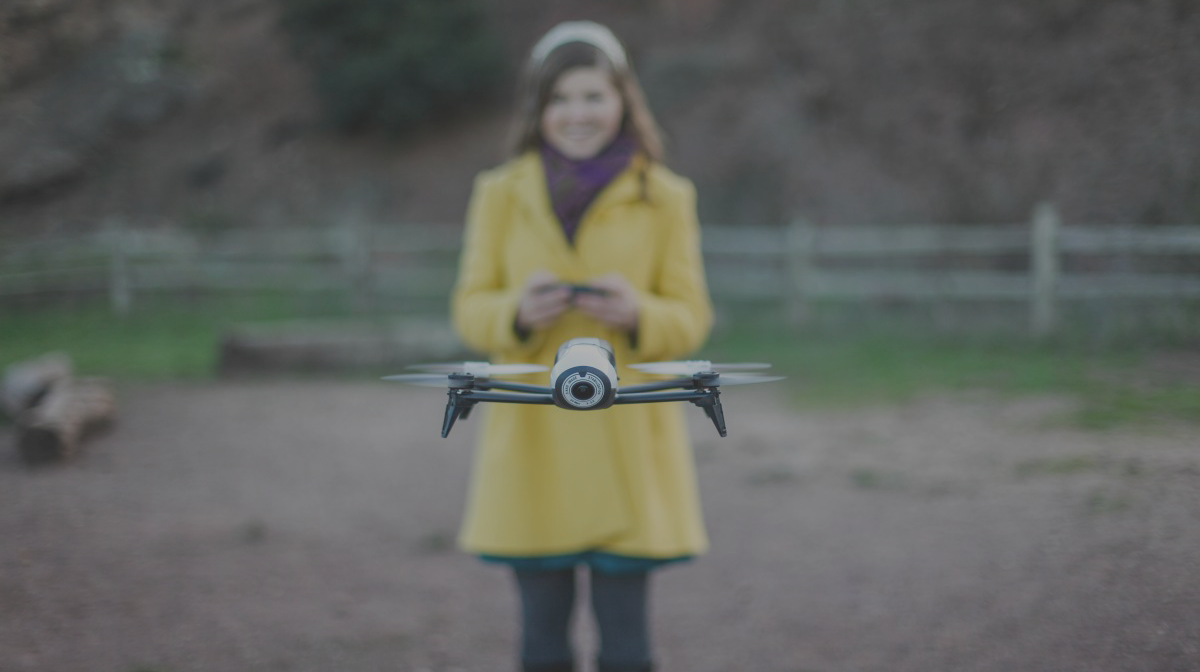When it comes to drones, very few people are as passionate as Sally French “The Drone Girl.” French travels the globe giving lectures on the industry and is the creator of the popular website thedronegirl.com. Here, Botlink caught up with her to talk about how she got her start with drones, what the future may hold for them, and how they have positively impacted her life.
1. How did you get your start in the drone industry?
I was a student at the University of Missouri and needed one more credit to graduate. My last semester the school offered a “drone journalism” course. I had no idea what a drone was at the time, but I signed up and was instantly hooked. While the course ended, I wanted to continue learning about drones, which is why I created Drone Girl.
2. What was the first drone you bought?
A DJI Phantom — the original model. It was one of the first drones that was ready to fly out of the box and “easy to fly.” To be fair, it wasn’t easy to fly compared to what we have now.
3. In general, what is your favorite drone to fly for fun?
I’ve flown all kinds of fun drones. Reviewing the Aura gesture controlled drone was such a hoot. Racing drones of course are thrilling. In general, my overall favorite drone for price, ease of use, design and quality is the DJI Mavic Pro.
4. What excites you about the world of drones?
I love that a drone is a tool that opens up infinite possibilities in a huge range of industries. They lead to so many creative applications beyond just photography or racing.
photo via facebook.com/thedronegirl
5. How has your love of drones positively impacted other aspects of your life?
This is so cliche, but I’ve met so many wonderful people and made so many connections around the world. Drones have taken me to countries I had never even heard of and helped me meet people who I would have never otherwise come across.
6. What two pieces of advice would you give someone that just got their first drone?
1. Practice on a low cost drone! Even though drones today are easy to fly, there is always a chance you’ll crash it. You would much rather have a $30 drone at the bottom of a pool than a $3,000 one.
2. Read the manual!
7. What advice would you have for a young girl/woman who wants to get involved in the drone industry?
People are going to treat you differently. They’ll assume things about you that they wouldn’t assume about a man. Unconscious biases are real, and you’re going to have to work hard to overcome them. You’re going to have to work twice as hard as a man to get where you want. Every woman I’ve met has a story about her having to work harder than a man to get the same thing. In the drone journalism course I took, the teacher picked 3 people who he wanted to designate as drone pilots. His selection wasn’t based on anything — he never saw us fly and he never knew anything about our technical backgrounds. Even though the class was evenly distributed by gender — 4 men and 4 women — the 3 people who chose were all guys. I doubt that was a coincidence.
People have an unconscious bias that “men enjoy flying drones” and “women don’t.” I had to go out of my way to ask the teacher if I could fly a drone, and since the pilots were selected, I had to make time on my own to fly. That was really unfortunate because I felt like they got an unfair disadvantage. That being said, being a woman in a male-dominated industry is going to make you stand out, so you might as well use that to your advantage! People will remember you as the person they met at X conference because you were likely one of the few women they met there. For all the challenges you face, I think this is one huge.
photo via thedronegirl.com/desktop-backgrounds
8. Where do you see the drone industry as a whole headed in 5 years?
I think we are crawling over the hump of drones as a fad. Last year we saw a lot of “Domino’s experiments with drone pizza delivery!” Of course, that’s not actually happening on any sort of broad scale. Comedians have treated drones like a joke. The good news is that “drones as a fad” are dying out, and we’re starting to see drones being used for serious use cases. We’ll continue to see serious use cases grow, but you might hear less about drones in the media.
9. What applications do you think drones will be used for the most in the coming years?
Any industry that already utilizes aerial work in some capacity will likely see tremendous value in drones from both a safety and cost efficiency standpoint.
For more, check out Sally’s website thedronegirl.com and on Twitter.



